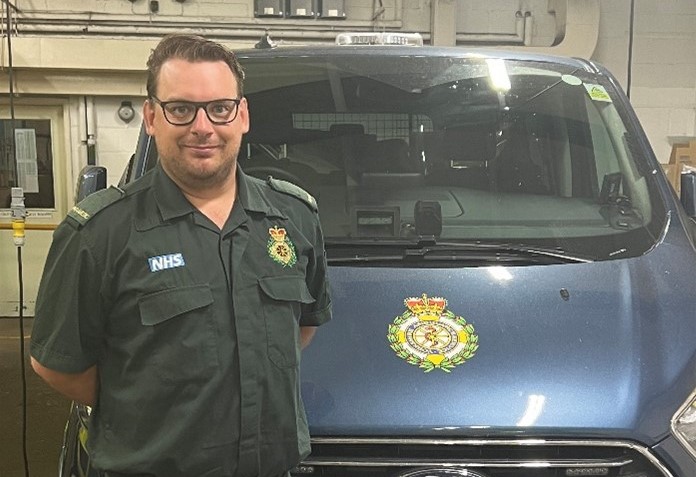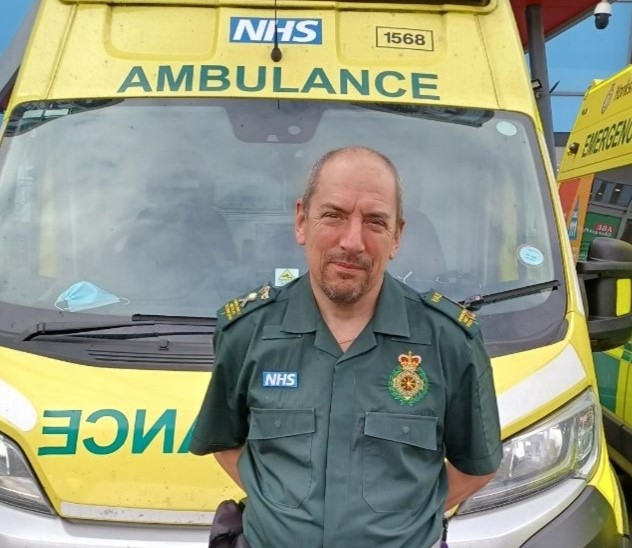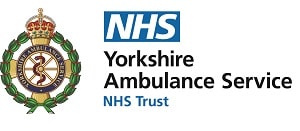Mental health – providing dedicated support for patients
06 October 2022
During 2021 we received nearly 60,000 mental health-related calls to our 999 service and around 19,000 calls to our NHS 111 service.
It is recognised nationally that we will see more and more people who need support for mental health problems, particularly as the impact of COVID-19 starts to become clearer.
Providing the right support for patients in mental health crisis is vital and we have worked closely with our partners over the past two years to pilot new approaches to care.
At YAS, we now have a dedicated mental health team - experienced colleagues finding new and innovative ways of working on behalf of patients.
Their work has included:
- Developing mental health response vehicles to support people in crisis
- Working with the voluntary sector to ensure “safe spaces” for people who need support
- Rolling out mental health training to staff
Creating a new specialist mental health paramedic role – a first for the country.
Mental health response vehicles
After a successful pilot scheme in Hull, we now have three dedicated mental health response vehicles in the region to support people in mental health crisis. The scheme is due to rollout further over the coming years as our evaluation shows positive results for patients.
The vehicle is operated by ambulance staff who have had additional mental health training. Around 62% of patients attended by the vehicle were treated or supported at the scene without the need for onward conveyance.
This has not only delivered real benefits for patients, but also contributed to reducing the pressure on emergency departments and to releasing ambulance resources for other emergency calls.
You can read more in our case study below.
‘Safe spaces’ for people who need support
We have been working closely with other organisations across the region to ensure people can access the care they need in their communities wherever possible. Emergency departments in hospitals are very often not the right place for people to be cared for when they are in mental health crisis.
One example of an alternative approach is Safe Space in Doncaster, supported by people with lived experience. People are offered a safe, homely environment with fast access to support at a time when it is needed the most.
We have worked with the service to develop it as an option for care when we receive a call for support for someone in mental health crisis.
David, a man in his 70s, was supported by Safe Space after the police were called by a member of the public concerned about him sleeping in his car. Our mental health response vehicle transported him to Safe Space, where he was given access to the immediate help and support he needed.
Over the days ahead, Safe Space worked with other agencies to ensure David had access to the longer-term support he needed. He described being overwhelmed by the support he received and feeling safe.
He said the day he was taken to Safe Space would have been the day he died if it had not been for the police, YAS and Safe Space working together to support him at a time when he had given up hope.
Mental health training for our frontline staff
Later this year we will be rolling out a bespoke training programme to all our frontline staff – that means anyone who has contact with our patients. This will include our colleagues in our 999 and NHS111 contact centres, Patient Transport Service and all our ambulance crews.
Our staff have told us they want extra support to help people with mental health problems and this will help us further develop our workforce for the benefit of our patients.
A new specialist mental health paramedic role
The team is keen to develop a new specialist mental health paramedic role to further strengthen and support our work to improve care for patients. This would be a significant step forward for the Trust and a first for the country and we are working closely with the College of Paramedics to take it forward this year.
Mental health response vehicle – delivering real benefits for patients
Our first Mental Health Response Vehicle was piloted in 2021 in Hull. Paramedic John Sherman volunteered to be part of the pilot as he had always been interested in mental health.
The vehicle is operated by ambulance staff who have had additional mental health training and supports people in mental health crisis. It does not look like a traditional ambulance and John said some patients really appreciated that.
He said: “It has been well received - the vehicle maybe different but we are still paramedics and clinicians. Some have said they prefer it because it is not drawing the attention that an ambulance can do, and they found it less intimidating to be in the vehicle and talking to a clinician.”
Among the many benefits of the new response is that often it prevents an inappropriate referral to emergency departments, which are not always the most appropriate place for someone experiencing a mental health crisis.

John Sherman, Paramedic
John said it had also helped him have a greater understanding of the alternative services available locally to patients, ensuring they are treated in the right place at the right time.
The needs of these patients can often be met just as effectively, or even more so, in their own homes or in the community alongside alternative care providers and wider NHS services.
“We build relationships with longer-term service users, which helps in their care, and strong relationships with partner organisations. I spent time working with the Humber Crisis Intervention Team and now understand more clearly what exactly they can offer patients.”
The results so far have been encouraging, with over 62% of patients attended by the vehicle treated or supported at the scene without the need for onward conveyance. This has not only delivered real benefits for patients, but also contributed to reducing the pressure on emergency departments and to releasing ambulance resources for other emergency calls.

Antony Cherry, Emergency Medical Technician
Emergency Medical Technician Antony Cherry worked on the vehicle for a month during the Hull pilot. He felt there were real benefits for patients and also for NHS staff across different organisations, building stronger working relationships and a clearer understanding of each other’s roles.
“The anonymity of the vehicle provides privacy which can be very important as, sadly, there can still be some stigma attached to mental health problems and a traditional ambulance attracts attention. Patients can immediately feel more comfortable with the new vehicle, which helps break the ice,” Antony said.
Antony’s personal experience of mental health issues was a key driver behind his involvement in the project and he is proud of its achievements for patients. “We have been able to build relationships with patients who regularly need support and they welcome a friendly face and are happy to talk to us.
“If we know a patient and their history, it really helps and can help avoid referrals to Emergency Departments. Nobody wants to go to hospital and it is not always the right answer - on many occasions we were able to safely care for the patient at home through this pilot."
“We also spent time with the mental health professionals from the local crisis team who joined us on the vehicle. That helped us understand each other’s roles more clearly and was also an opportunity for them to see patients they know but in a different environment and in different circumstances, which is important.”
Humberside Police has collaborated with YAS and Humber Teaching NHS Foundation Trust on the pilot. John Thirkettle, Mental Health Operations Manager at Hessle Police Station said: “Ensuring people can access the right care from the right person is really important and assists with their immediate needs as well as their ongoing support.”
The programme was extended in April 2022 to Doncaster, South Yorkshire, and May 2022 to Wakefield, West Yorkshire. More vehicles will be coming online across the region over the next few years.
Produced by: Corporate Communications Department

